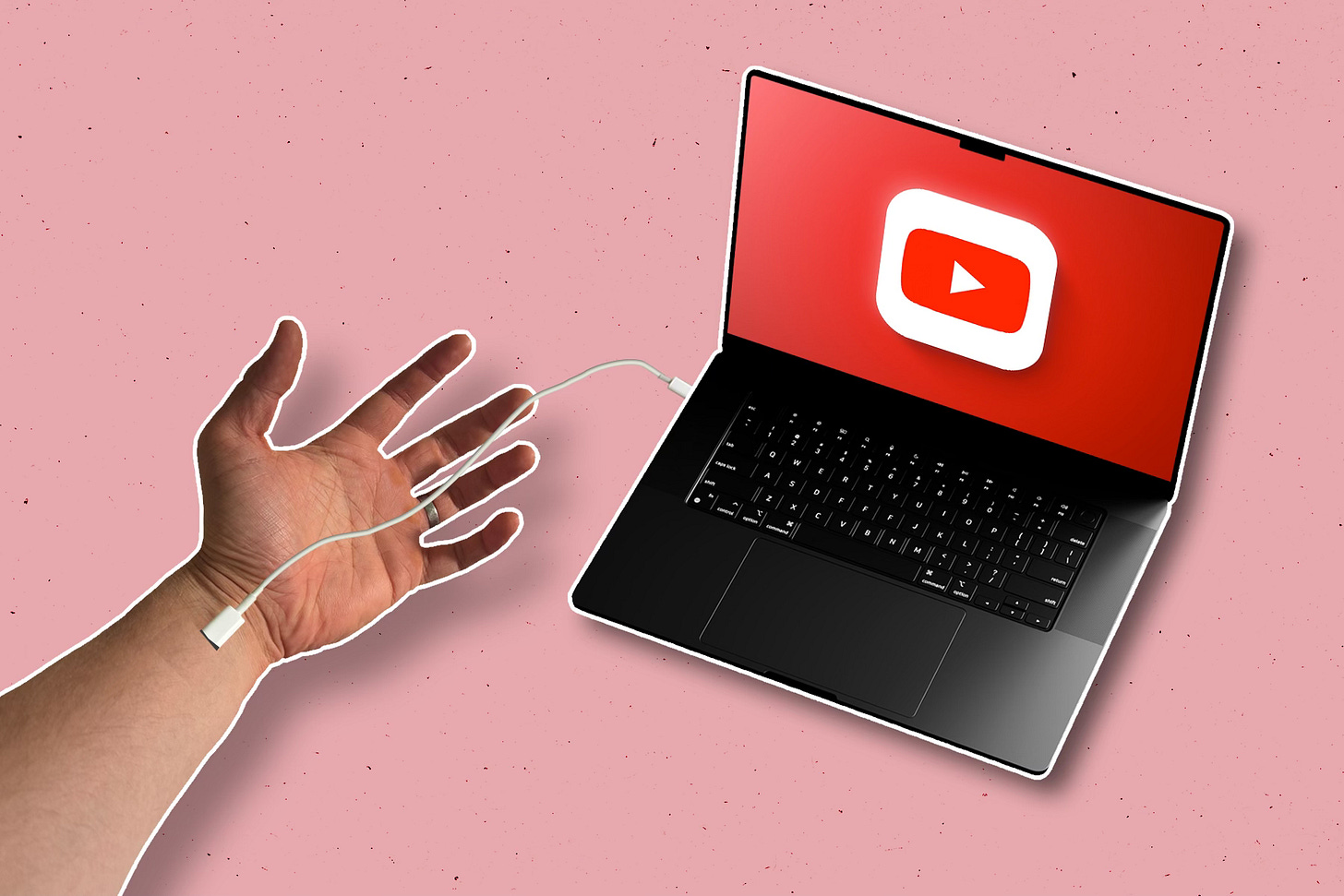Dopamine, Inc
190,000 years spent watching YouTube Shorts
When you think about it, engagement metrics are pretty grim stuff. Total views, minutes watched, time spent, adverts consumed, swipes left and right, feeds scrolled and more. We see them used during fancy keynotes and in shareholder calls as a demonstration of how good a platform is performing. These numbers serve as a measure of how effectively said platform is at diverting our eyes away from what's around us and keeping them fixated on a screen for as long as possible.
For shareholders, that means money. For the consumer, that means a whole lot of lost time.
It's a strange juxtaposition — tech bros boasting about how engaging (read: addictive) their platforms are while the public continues to wake up to the realization that these platforms are a net negative for our productivity, health, and our ability to make connections. As we attempt to control our use, or at least learn to put the damn things down (or not pick them up the second we wake up in the morning), the platforms themselves are doing everything in their power to make that harder.
And let's be clear. They're really good at it.
The proof is in the metrics they froth over so much. On Facebook, the average time a user spends on the platform is 30 mins each day, and it has over 3 billion monthly users. It's similar on Instagram. On TikTok, which has over 2 billion monthly users, the average time spent per day is almost an hour.
In a recent keynote, YouTube execs revealed that the platform's short-form video format now generates 200 billion daily views. Yes. 200 billion, every single day.
We can assume these figures are somewhat juiced, and the company is likely counting microseconds spent on a video as a watch. But for the sake of this argument, let's assume it is 200 billion views. With around 60% of the population having access to the Internet, primarily through smartphones, that means either everyone is watching ~40 shorts a day, or some people are pulling truly deranged numbers.
That's not even the scary part. Taking the average length of a Short to be somewhere between 30 and 60 seconds, that adds up to an insane amount of time.
200,000,000,000 × 30 seconds = 6,000,000,000,000 seconds
6,000,000,000,000 ÷ 60 = 100,000,000,000 minutes
100,000,000,000 ÷ 60 = 1,666,666,666.67 hours
1,666,666,666.67 ÷ 24 = 69,444,444.44 days
69,444,444.44 ÷ 365 = 190,000 years
One hundred and ninety thousand years worth of YouTube shorts, consumed every single day. Doesn't that blow your mind? When you add in the rough estimates of time sunk across Facebook, Instagram and TikTok, it's likely millions of combined years spent on platforms that offer almost no utility and no real benefits, these days functioning as nothing more than data harvesting machines and ad delivery mechanisms.
The sheer amount of wasted hours we can attribute to technology is staggering.
And that's why, when they go up on stage and brag about these figures, it makes me feel a bit icky. They're boasting about how they've built really addictive dopamine machines that are probably lowering brain cells and definitely lowering productivity. They're boasting about how children are becoming addicted to devices at such a young age when their brains are so malleable. They're proud of themselves for designing technology and algorithms that are so effective at sucking us in that many of us log frankly worrying hours of screen time every day (people are clocking well over 7 hours a day).
What worries me most is what comes next. Right now, the platforms are great at using algorithms to match content to our viewing habits. When you need that next hit of whatever it is you watch, it's there to stick the needle in for you. But for the most part, it's simply matching videos to eyeballs through complex data matching. The incoming wave of AI-generated content will change that, adding another layer of personalization that's sure to make these platforms even harder to separate from.
No longer will it be matching content — the platforms will be creating it, serving you entire feeds of hyper-tailored, fine-tuned output designed to tick every box they have on you, thanks to the 1000s of data points they stole from you.
The more tailored it is, the more "for you" it becomes, the more addictive it becomes, and the more minutes we'll lose to mindless scrolling. We’ve already shown we’re incapable of getting off the dopamine wheel, all too happy to let life pass by as we scroll away. Do we really have the willpower — or even the capability — to push back against a system that’s so well-designed? I’m not sure we do.
At least it will give the tech bros something to smile about.




It feels so good to scroll, but when you observe someone else doing it, often missing out on what’s really happening in front of them - that’s when you notice how scary it really is.
Either the math falls apart somehwere or it's worse than this because I got 182,000 years.